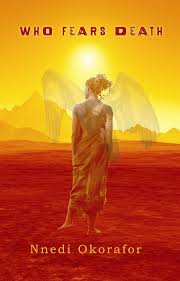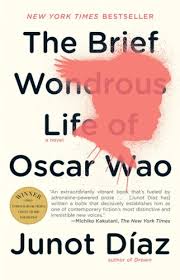Last year I told myself I was going to read more African-American fiction because I had knowingly avoided it for reasons mentioned
here. In sum, I was annoyed that 1) Most books in the A.A. section of the bookstore looked like low-grade smut with brown people on the cover and 2) As a brown person I'm expected to read or have a connection to these books...I realize now and have realized for some time that I shouldn't generalize about things that I haven't investigated. So what did I do/try to do?--well, investigate of course. I started Quest Alpha to explore contemporary African-American fiction.
The first book I read for Quest Alpha was
Man Gone Down (click title for review). And it was amazing. I nominated it as one of the best 'Morose' reads of 2012 for it's
gloomy depiction of a broken man in a broken family, trying to make the American Dream. Noting that the utter hopelessness in the stream-of-conscious narrative was raw, poetic and intellectual. I initially chose it because I thought it would address two of my favorite themes: (de)composition of the American family and failure to realize the American Dream. It did not disappoint.

The second book I was supposed to read was
Erasure by Percival Everett, but to this day I haven't been able to get my hands on a copy...so I redirected to another book--
Who Fears Death (click title for review) It was like nothing I had ever read before, a weird composite of sci-fi/fantasy/dystopian with a non-eurocentric flair.

I read
Who Fears Death months ago. In October I think. I haven't read anything else for the quest since then...but interestingly enough I started reading
The Brief Wondrous Life of Oscar Wao by
Junot Diaz a few days ago. And I feel I've inadvertently stumbled upon another book for the quest. However, there might be a problem...but wait, before I go into that potential problem I want to say why I think it works for the quest. There's a theme that connects
Man Gone Down, Who Fears Death and The Brief Wondrous Life of Oscar Wao: the struggle with identity. It is overwhelmingly present in all three books. But now the problem: Junot Diaz. No that's not right, the real problem is I don't know enough about Junot Diaz--enough about Junot Diaz's color identity. Is he one of those brown people who doesn't identify with his brownness? This of course doesn't matter in the storytelling. A good story is a good story. But I also don't want to slap a label containing any form of modifier that doesn't apply to someone, i.e African-American. There are some people who might take issue with this...not myself--but some. Diaz is Dominican point blank. I'm not certified, qualified, or justified to grade his level of blackness or African-American-ness (?) Besides I don't
think Junot Diaz is one of those authors who tries to define anyone's blackness per se, he's just illustrating his reality. A reality, a genuine experience. An experience that this young woman can identify with...so anyways, I found this video of Junot Diaz speaking last December. Please watch if you have a minute or two.
So I watched the video and knew I didn't want to pull a 'passport check' AND I really like this book so I'm going to use it as reading material for Quest Alpha. But I still feel a little weird including him in the mix...I'm going to learn all I can about Diaz...he intrigues the hell out of me.
I think any story told from the perspective of a child-of-immigrants, regardless of race, will have similar themes. I know maybe that isn't quite your project idea, but Diaz is a great read regardless!
ReplyDelete...yes. A decent number of black people are children of 'immigrants' in non-traditional sense...so I know what you mean. I'm just wondering how that unconventional means has shaped literature today--in the now--compared to what used to be written by a particular group.
DeleteI do think it's interesting that we still struggle with this identity, within our own, let alone in connection to other races...some children of immigrants have blended so well. Others not so much...I don't know. I still have way more books to read.
Thanks for visiting! I really do enjoy the conversation.